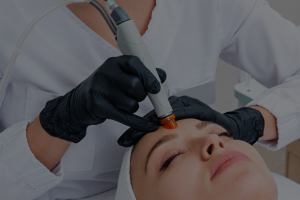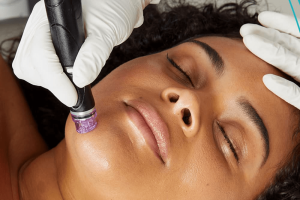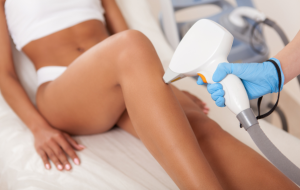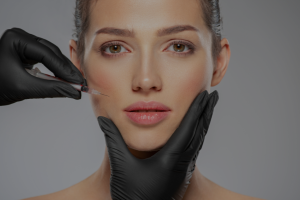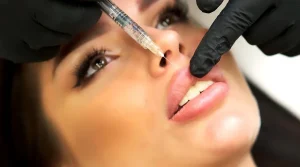If you’re considering lip enhancement through fillers or just curious about the longevity of lip injections, it’s essential to know how long you can expect the results to last. The duration of lip fillers can vary depending on several factors, such as the type of filler used, individual metabolism, and lifestyle choices.
Understanding the lifespan of lip fillers is crucial in making an informed decision and managing your expectations. In this comprehensive guide, we’ll explore the duration of lip fillers and uncover the truth about how long they last.
Key Takeaways
- Lip filler duration can vary depending on several factors, such as the type of filler used and individual metabolism.
- Consulting with a qualified professional is essential in determining the best approach for your specific goals.
- Maintenance and touch-ups can help prolong the results of lip fillers.
- Following proper aftercare can help you make the most out of your lip enhancement.

Understanding Lip Fillers and Their Effects
Lip fillers have gained popularity in recent years as a cosmetic procedure to enhance the appearance of lips. The procedure involves injecting a gel-like substance into the lips to add volume and fullness.
The effects of lip fillers can last anywhere from several months to over a year, depending on various factors. Understanding the lifespan of lip fillers is crucial to prepare for the procedure and manage expectations.
Lip Filler Lifespan:
The lifespan of lip fillers can vary based on:
- Type of filler used
- Individual metabolism
- Lifestyle choices
Some of the most commonly used fillers include hyaluronic acid-based fillers such as Juvederm or Restylane. These fillers typically last six to twelve months, with some patients reporting results lasting up to two years.
Other types of fillers, such as fat grafting or silicone injections, can offer longer-lasting results but also come with potential risks and complications. It’s important to consult with a qualified professional to determine the best type of filler for your goals and individual needs.
How Long Do Lip Injections Stay?
The effects of lip injections typically start to wear off gradually after several months, with the filler breaking down and being absorbed by the body. The duration of the effects can vary depending on the factors mentioned above.
It’s essential to understand that lip fillers are not permanent and will require maintenance and touch-ups to maintain the desired results. Most patients will need to schedule touch-up appointments every six to twelve months, depending on the type of filler used.
Lip Filler Longevity:
The longevity of lip fillers can also be impacted by aftercare. Proper care following the procedure can help prolong the results and minimize any swelling or discomfort.
“It’s essential to consult with a qualified professional to determine the best type of filler for your goals and individual needs.”
After the procedure, it’s important to avoid strenuous activities, sun exposure, and excessive heat or cold. Patients should also avoid touching or pressing their lips and follow all post-procedure instructions provided by their healthcare professional.
In the next section, we’ll discuss the factors that can affect the longevity of lip fillers in more detail.
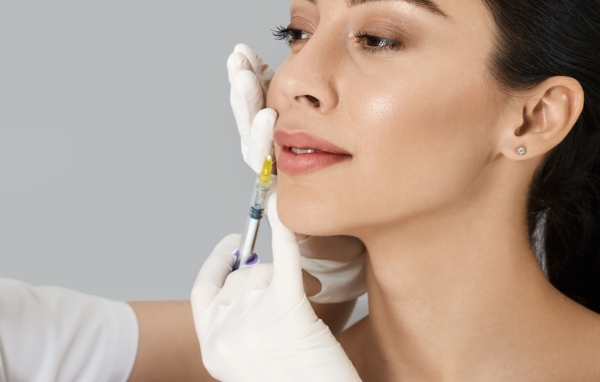
Factors Affecting the Longevity of Lip Fillers
Lip fillers don’t last forever, and their duration can vary depending on several factors. Here are some of the most significant factors affecting the longevity of lip fillers:
- Metabolism: A person’s metabolism plays a crucial role in how long the lip fillers last. Faster metabolism tends to break down the filler more rapidly, leading to a shorter lifespan.
- Type of Filler: Different types of fillers have various compositions, which can impact their longevity. Hyaluronic acid fillers are the most commonly used and tend to last between six to twelve months, while others, such as collagen fillers, have a shorter lifespan, lasting up to six months.
- Dosage: The amount of filler injected can affect the duration of the results. Higher dosages may provide longer-lasting effects, but it’s essential to follow the recommended dosage to avoid unwanted side effects.
- Location: The location of the injection can also affect how long the fillers last. Areas with more movement, such as the lips, may experience faster breakdown compared to less active areas.
- Lifestyle: Certain lifestyle factors, such as smoking and exposure to sun, can impact the longevity of lip fillers. Smoking can increase the breakdown of fillers, while excessive sun exposure can cause them to degrade more quickly.
It’s important to discuss these factors with your injector and communicate your desired outcome to determine the best approach for your specific needs.
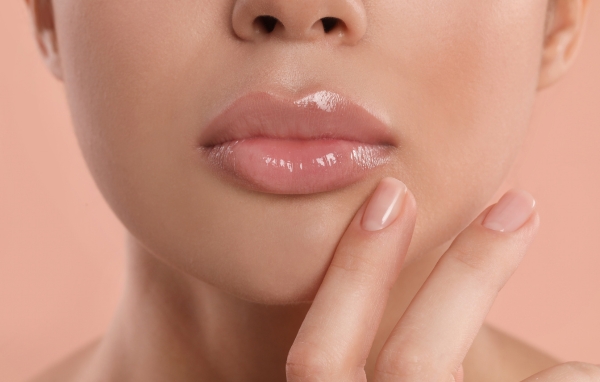
Different Types of Lip Fillers
Not all lip fillers are created equal, and their composition can affect how long the results last. There are two main types of lip fillers: synthetic and natural.
Synthetic Lip Fillers
Synthetic lip fillers, such as those made of polymethyl methacrylate (PMMA), are considered permanent. They consist of microspheres that are not absorbed by the body and remain in place.
This type of lip filler can provide long-lasting results, but it’s important to note that it’s not reversible, and if you’re not satisfied with the results, you’ll need to undergo surgery to remove it.
Natural Lip Fillers
Natural lip fillers are made of substances that occur naturally in the body, such as hyaluronic acid. These fillers are not permanent and are absorbed over time by the body.
The longevity of natural lip fillers can vary depending on the specific brand and injection technique used. On average, natural lip fillers can last anywhere from six months to a year.
Some natural lip fillers, such as those containing lidocaine, may cause swelling and bruising that can affect the immediate appearance of the lips. However, this swelling typically subsides within a few days, and full results should be visible within two weeks.
It’s important to consult with a licensed professional to determine which type of lip filler is best for you and your specific goals. They will be able to recommend the most appropriate option based on your desired results and medical history.

The Lip Filler Procedure
The lip filler procedure typically takes about 30 minutes to an hour, depending on the amount of filler being injected. Before the procedure, your doctor will apply a numbing cream or local anesthetic to minimize any discomfort.
During the procedure, the doctor will inject the filler into specific areas of your lips to achieve the desired shape and plumpness. You may experience some swelling and bruising afterward, which can last for a few days.
Before and Aftercare Tips
Following proper before and aftercare is essential for maximizing the longevity of your lip filler results. Before the procedure, avoid taking blood-thinning medications or supplements, as they can increase the risk of bruising. After the procedure, apply ice packs to reduce swelling and avoid strenuous activities for at least 24 hours.
To maintain the results of your lip filler, avoid smoking and excessive sun exposure, as they can break down the filler more quickly. Keeping your lips moisturized and hydrated can also help prolong the results.
Be sure to discuss all before and aftercare instructions with your doctor before the procedure to ensure a successful outcome.
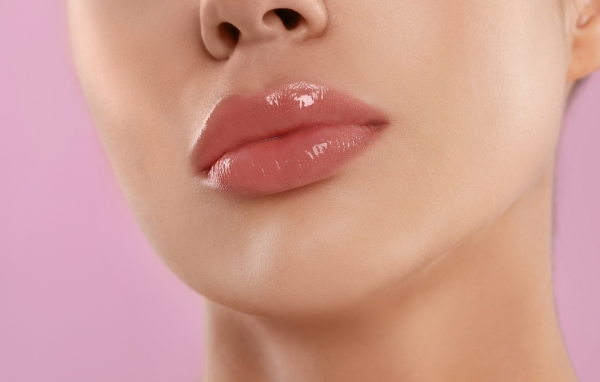
Typical Lifespan of Lip Fillers
So, how long do lip fillers last? The typical lifespan of lip fillers can vary depending on factors such as the type of filler used, individual metabolism, and lifestyle choices. Generally speaking, the longevity of lip fillers can range from 6 months to 2 years.
Some of the most popular lip fillers on the market, such as Restylane and Juvéderm, can last between 6 and 12 months. On the other hand, longer-lasting fillers such as Bellafill and Sculptra can last up to 2 years.
The longevity of lip fillers also depends on how quickly your body metabolizes the filler. Factors such as genetics, age, and metabolism can impact how quickly the filler breaks down, which in turn affects how long the results last.
Factors Affecting Lip Filler Duration
There are several factors that can affect the duration of lip fillers. These include:
- The type of filler used
- The amount of filler injected
- The area of injection
- The individual’s metabolism
- The individual’s lifestyle choices, such as smoking or sun exposure
It’s important to discuss your goals and expectations with a qualified professional to determine the best type of filler and injection plan for you.

How to Extend the Lifespan of Lip Fillers
While the lifespan of lip fillers can vary, there are certain measures you can take to help extend their duration. Following these tips and tricks can help you get the most out of your lip enhancement:
- Avoid smoking and excessive sun exposure
- Stay hydrated and maintain a healthy lifestyle
- Schedule regular touch-up appointments
- Choose a high-quality filler and experienced injector
The key to maximizing the longevity of your lip fillers is to take care of your body and follow proper aftercare instructions. By doing so, you can enjoy fuller, plumper lips for an extended period.
Maintenance and Touch-Ups
While lip fillers can last for several months, their longevity is not indefinite. Maintenance and touch-ups can help prolong the results and keep your lips looking plump and youthful.
The frequency of touch-up appointments can vary depending on the individual and their goals. Generally, touch-ups are recommended every six months to a year. However, it’s essential to consult with your provider to determine the appropriate time frame for your specific needs.
How Much Do Lip Fillers Cost?
The cost of lip fillers can vary depending on the provider, type of filler used, and the amount of product required. On average, the cost of lip fillers ranges from $500 to $2,000 per syringe.
It’s important to note that cheaper does not necessarily mean better when it comes to cosmetic treatments. Always choose a reputable provider with extensive experience in lip augmentation to ensure the best possible results.
Lip Filler Longevity
The longevity of lip fillers varies depending on several factors, including the type of filler used and the individual’s metabolism. Typically, lip fillers can last anywhere from six months to two years. However, it’s important to note that individual results may vary.
To maintain the longevity of your lip filler results, it’s crucial to follow proper aftercare instructions and schedule regular touch-up appointments with your provider. Additionally, avoiding smoking and excessive sun exposure can help prolong the duration of your lip augmentation.
“I love my lip fillers! I’ve been getting them for a few years now, and I always make sure to schedule regular touch-up appointments to maintain the results. It’s definitely worth the investment for me.” – Sarah K.
Tips for Extending Lip Filler Results
While the exact duration of lip fillers can vary, there are steps you can take to extend the life of your lip augmentation. Here are some tips:
1. Follow aftercare instructions
Proper aftercare is essential to help your lips heal and maintain the results of your lip filler. Be sure to follow your provider’s instructions, which may include avoiding certain foods and activities and using ice to reduce swelling.
2. Stay hydrated
Dehydration can cause your lips to dry out and lose volume. Be sure to drink plenty of water to keep your body and lips hydrated.
3. Use a lip balm with SPF
Protect your lips from the sun’s harmful rays by using a lip balm with SPF. This can also help prevent your lips from drying out and losing volume.
4. Stick to a healthy lifestyle
Smoking and excessive alcohol consumption can have a negative impact on your lip filler results. To maintain the longevity of your lip enhancement, it’s important to stick to a healthy lifestyle, which includes eating well, getting enough sleep, and avoiding smoking and excessive drinking.
5. Consider touch-up appointments
Depending on the type of filler used and individual metabolism, you may need to schedule touch-up appointments to maintain the results of your lip enhancement. Talk to your provider about the best approach for your specific needs.
By following these tips and staying consistent with aftercare, you can help extend the life of your lip filler and keep your lips looking plump and beautiful.
Conclusion
When it comes to the duration of lip fillers, there is no one-size-fits-all answer. The lifespan of lip injections can vary depending on several factors, including the type of filler used, individual metabolism, and lifestyle choices.
To ensure the best possible outcome, it’s essential to consult with a qualified professional who can evaluate your unique needs and recommend the appropriate treatment plan.
Proper aftercare can also play a significant role in extending the longevity of your lip enhancement. Following the recommended guidelines for before and aftercare, including avoiding certain foods and strenuous activities, can help minimize swelling and maximize the results.
Final Thoughts
While lip fillers may not be a permanent solution, they can provide a beautiful and natural-looking enhancement to your lips for an extended period. By understanding the factors that affect lip filler longevity and taking the necessary precautions, you can enjoy fuller, plumper lips for months or even years to come.
FAQ
How long do lip fillers last?
The duration of lip fillers can vary depending on factors such as the type of filler used and individual metabolism. On average, lip fillers can last anywhere from 6 to 12 months.
What factors affect the longevity of lip fillers?
Several factors can impact how long lip fillers last, including the type of filler, metabolism, lifestyle choices, and aftercare. It’s best to consult with a qualified professional for personalized information.
Are lip fillers permanent?
Lip fillers are not permanent. Over time, the filler will gradually break down and be absorbed by the body, leading to a decrease in volume. Maintenance and touch-up appointments are often recommended to maintain desired results.
How often do I need to schedule touch-up appointments?
The frequency of touch-up appointments can vary depending on individual factors and personal preferences. Typically, touch-ups are recommended every 6 to 12 months to maintain optimal results.
How much do lip fillers cost?
The cost of lip fillers can vary depending on the type of filler used, the amount of product required, and the expertise of the injector. It’s best to consult with a professional for an accurate cost estimate.
Can I extend the duration of my lip filler results?
There are certain measures you can take to extend the longevity of your lip filler results. This includes following proper aftercare instructions, avoiding excessive sun exposure, and maintaining a healthy lifestyle.
Will there be swelling after lip filler injections?
It is common to experience swelling after lip filler injections. The swelling typically subsides within a few days. Applying cold compresses and avoiding certain activities can help minimize swelling.
What should I expect during the lip filler procedure?
During the lip filler procedure, a qualified professional will inject the filler into specific areas of your lips to enhance their shape and volume. The procedure generally takes about 30 minutes and may involve some discomfort, which can be minimized with the use of numbing cream or a dental block.
Are lip fillers safe?
When performed by a qualified professional, lip fillers are generally considered safe. However, as with any cosmetic procedure, there are potential risks and side effects. It’s essential to choose a reputable injector and discuss any concerns or medical conditions beforehand.

